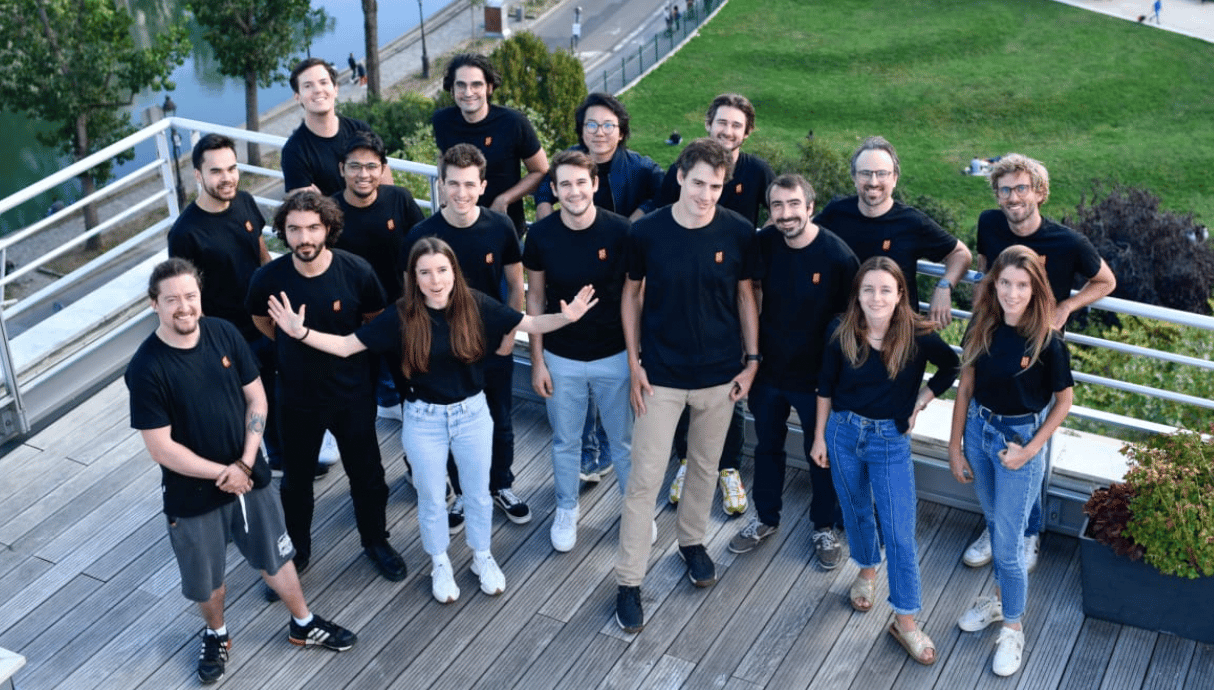
Welcome, AI Enthusiasts.
Mistral AI, a French startup, has secured €385 million ($414 million), solidifying its position as a leading force in Europe's AI industry.
OpenAI, a major player in artificial intelligence (AI), is implementing strategies to reduce regulatory risks concerning data privacy in the European Union (EU).
In today’s issue:
🤖 Unveiling Mistral AI: Europe's Cutting-Edge Tech Unicorn
🦾 OpenAI's Measures to Mitigate Data Privacy Risks in the EU
🛠️ 3 New AI tools
💻 Custom prompts ChatGPT and DALL-E 3
🤖 3 Quick AI updates
Read time: 6 minutes.
LATEST HIGHLIGHTS

Image source: Mistral AI
To recap: Mistral AI, a French startup, has secured €385 million ($414 million), solidifying its position as a leading force in Europe's AI industry. Renowned for its user-friendly AI models, it emphasizes open-source AI, recently partnering with Google Cloud to enhance its capabilities while adapting to the EU's new AI Act regulations. This article delves into Mistral AI's growth, services, collaboration with Google Cloud, and its adjustment to the EU AI Act, addressing its impact on the company's future strategies and compliance measures.
The details:
Mistral AI's Funding Success: Recently, the French AI startup raised €385 million ($414 million), positioning itself as a prominent force in Europe's AI landscape. This substantial fundraising has enabled the company to expand and solidify its presence in the industry.
Partnership with Google Cloud: Mistral AI's collaboration with Google Cloud signifies a significant step forward in enhancing its AI capabilities. Leveraging Google Cloud's technology, including TPU Accelerators, strengthens Mistral AI's offerings, potentially leading to more advanced and secure AI solutions.
Adaptation to the EU AI Act: The EU's new AI Act introduces stringent regulations for AI systems. As Mistral AI embraces open-source AI, aligning with transparency and user protection, it must navigate compliance with these regulations, especially concerning high-risk AI services. This adjustment will likely shape the company's future strategies and industry influence.Mistral AI's Funding Success: Recently, the French AI startup raised €385 million ($414 million), positioning itself as a prominent force in Europe's AI landscape. This substantial fundraising has enabled the company to expand and solidify its presence in the industry.
Partnership with Google Cloud: Mistral AI's collaboration with Google Cloud signifies a significant step forward in enhancing its AI capabilities. Leveraging Google Cloud's technology, including TPU Accelerators, strengthens Mistral AI's offerings, potentially leading to more advanced and secure AI solutions.
Adaptation to the EU AI Act: The EU's new AI Act introduces stringent regulations for AI systems. As Mistral AI embraces open-source AI, aligning with transparency and user protection, it must navigate compliance with these regulations, especially concerning high-risk AI services. This adjustment will likely shape the company's future strategies and industry influence.Mistral AI's Funding Success: Recently, the French AI startup raised €385 million ($414 million), positioning itself as a prominent force in Europe's AI landscape. This substantial fundraising has enabled the company to expand and solidify its presence in the industry.
Partnership with Google Cloud: Mistral AI's collaboration with Google Cloud signifies a significant step forward in enhancing its AI capabilities. Leveraging Google Cloud's technology, including TPU Accelerators, strengthens Mistral AI's offerings, potentially leading to more advanced and secure AI solutions.
Adaptation to the EU AI Act: The EU's new AI Act introduces stringent regulations for AI systems. As Mistral AI embraces open-source AI, aligning with transparency and user protection, it must navigate compliance with these regulations, especially concerning high-risk AI services. This adjustment will likely shape the company's future strategies and industry influence.Mistral AI's Funding Success: Recently, the French AI startup raised €385 million ($414 million), positioning itself as a prominent force in Europe's AI landscape. This substantial fundraising has enabled the company to expand and solidify its presence in the industry.
Partnership with Google Cloud: Mistral AI's collaboration with Google Cloud signifies a significant step forward in enhancing its AI capabilities. Leveraging Google Cloud's technology, including TPU Accelerators, strengthens Mistral AI's offerings, potentially leading to more advanced and secure AI solutions.
Adaptation to the EU AI Act: The EU's new AI Act introduces stringent regulations for AI systems. As Mistral AI embraces open-source AI, aligning with transparency and user protection, it must navigate compliance with these regulations, especially concerning high-risk AI services. This adjustment will likely shape the company's future strategies and industry influence.
Here is the key takeaway: The key takeaway revolves around Mistral AI's significant growth and recognition in the European AI market due to its substantial fundraising, partnership with Google Cloud, and its current adaptation to the stringent regulations introduced by the EU's AI Act. The company's commitment to open-source AI aligns well with the Act's emphasis on transparency and user protection, influencing its strategies for compliance and innovation, which could set standards for AI development on a broader scale.

Image source: Unsplash
In Summary: OpenAI, a major player in artificial intelligence (AI), is implementing strategies to reduce regulatory risks concerning data privacy in the European Union (EU). The company aims to align its practices with EU regulations by exploring ways to enhance user data protection. OpenAI's focus on minimizing potential privacy concerns reflects its commitment to comply with evolving EU data privacy laws, aiming to ensure responsible and secure use of data within its AI systems.
Key points:
Compliance Strategy: OpenAI is proactively adjusting its operations to meet evolving EU data privacy regulations, emphasizing alignment with the region's laws to address potential concerns about data protection.
User Data Protection: The company is focusing on enhancing safeguards for user data within its AI systems, demonstrating a commitment to prioritize user privacy and security.
Regulatory Mitigation: OpenAI's moves reflect a strategy to minimize regulatory risks in the EU, underscoring a proactive approach to navigate potential data privacy issues before they escalate.
Responsibility and Adaptation: OpenAI's efforts highlight a responsible stance toward adapting its practices to comply with emerging regulations, ensuring responsible use of data in its AI models while keeping abreast of evolving data privacy laws in the EU.
Our thoughts: Addressing evolving regulatory frameworks, especially in regions like the EU, is crucial for tech companies. OpenAI's proactive stance to align with data privacy laws showcases a responsible approach. It's essential to prioritize user privacy while ensuring innovation isn't hindered. As a tech writer, covering these initiatives helps users understand how companies adapt to regulations, maintaining ethical standards without compromising technological advancement.
TRENDING TECHS
⎐ typedesk- Save time everywhere you work
🌌 AI Image Upscaler-Increase image resolution up to 4x with our free AI tool
🦾 Final Round AI- A Superpower for Interviewees
AI DOJO
ChatGPT
Guide and Refine Responses: If ChatGPT provides a generic or inaccurate response, guide it with more specific prompts or rephrased questions to steer it towards the desired information or direction.
DALL-E 3
Iterate and Refine: If the initial image generated isn't exactly what you're looking for, refine your description based on the output. Iterating with slight modifications often leads to better results.
QUICK BYTES
The piece highlights the difficulty of entering the narrative design realm in the gaming industry, offering personal insights and tips for aspiring game writers. Detailing a journey from childhood gaming passion to journalistic endeavors and finally pivoting to narrative design, it navigates the challenges and opportunities in narrative game creation amid the industry's turbulent landscape in 2023. The writer emphasizes the need for building a strong portfolio, networking through live events and online communities, participating in game jams, and finding mentorship opportunities. Having faced industry hurdles, the writer eventually sets up a game studio, sharing the process and considerations for releasing a game on platforms like Steam, culminating in the creation of their game "All We Need." The narrative is a testament to the passion, persistence, and challenges of carving a path into the narrative design niche within the gaming industry.
An individual shares their journey transitioning from journalism to narrative design in the video game industry, citing their passion for gaming and writing as the driving forces. They discuss the challenging landscape for game writers and designers, emphasizing the importance of building a strong portfolio, seeking mentorship, attending industry events, and participating in game jams. Despite the industry's unpredictability, the author describes their decision to establish a game studio and highlights the efforts in creating their first game while acknowledging the uncertainties inherent in the process.
As the push for mandatory digital ID cards gains momentum, the debate intensifies over whether these systems would bolster or undermine privacy in a world blending physical and online realms. Countries like Estonia and India showcase success stories but also highlight the vulnerabilities such systems can face, emphasizing the persistent threat of cyber-attacks and data breaches. In the U.S. and Europe, discussions and experiments with digital identity platforms underscore the balancing act between convenience and potential privacy infringements. With the UK also considering such systems, the debate rages on, emphasizing the need for a cautious approach to navigating the complexities of digital identity in a landscape fraught with data security concerns.
SPONSOR US
🦾 Get your product in front of AI enthusiasts
THAT’S A WRAP
